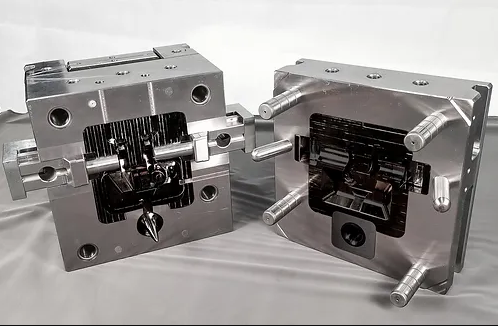Introduction:
Die casting is a highly efficient and versatile metal casting process that has been used for centuries to produce high-quality, complex-shaped metal parts. It involves injecting molten metal into a reusable mold, called a die, under high pressure. This guide aims to provide a comprehensive overview of die casting, including its history, process, materials, advantages, and applications.
History of Die Casting:
Die casting dates back to the 18th century when the first patent for a basic die casting process was granted in 1849. Over the years, advancements in technology and materials have transformed the die casting process into a highly accurate and cost-effective manufacturing method. Today, die casting is widely used in various industries, including automotive, aerospace, electronics, and consumer goods.
The Die Casting Process:
The die casting process involves several stages, namely mold preparation, melting, injection, cooling, ejection, and finishing. Initially, the die is prepared by machining it into two halves, called the die halves. These halves are then securely clamped together, creating a cavity into which molten metal is injected. The molten metal, typically aluminum, zinc, or magnesium alloys, is forced into the die cavity under high pressure, ensuring its complete filling. Once the metal solidifies, the die halves are opened, and the casting is ejected. Finally, the casting undergoes various finishing processes, such as trimming, polishing, and heat treatment, to achieve the desired specifications.
Materials Used in Die Casting:
Die casting offers a wide range of materials for manufacturing parts. Aluminum is the most commonly used material due to its lightweight, excellent thermal conductivity, and high corrosion resistance. Zinc is another popular choice, known for its superior casting characteristics and cost-effectiveness. Magnesium, although less common, is preferred for its exceptional strength-to-weight ratio. Other materials, such as copper, brass, and lead, can also be used based on specific requirements.
Advantages of Die Casting:
Die casting offers numerous advantages that make it a preferred choice for manufacturing parts. Firstly, it enables the production of complex shapes with high precision and tight tolerances. The process also ensures excellent surface finish and dimensional stability. Die casting is highly efficient, allowing for high-volume production with minimal material waste. Additionally, the durability and strength of die-cast parts make them suitable for a wide range of applications.
Applications of Die Casting:
Die casting finds extensive applications in various industries. In the automotive sector, it is used for manufacturing engine components, transmission cases, and structural parts. The aerospace industry relies on die casting for producing lightweight yet robust components for aircraft and spacecraft. Die casting is also widely utilized in the electrical and electronics industries for manufacturing housings, connectors, and heat sinks. Other applications include consumer goods, medical equipment, and tools.

Recent Advancements in Die Casting:
With continuous advancements in technology, die casting has witnessed significant improvements in recent years. The development of advanced simulation software has revolutionized the die casting process by enabling accurate mold design and optimizing the casting process parameters. Additionally, the use of robotics and automation has enhanced production efficiency and reduced labor costs. Furthermore, the introduction of new alloys and materials has expanded the capabilities of die casting, allowing for the production of lighter and stronger parts.
Conclusion:
Die casting is a versatile and efficient metal casting process that has played a crucial role in the manufacturing industry for many years. With its ability to produce complex shapes, high precision, and cost-effectiveness, die casting continues to be a preferred choice for various industries. As technology advances, die casting is expected to further evolve, opening new possibilities for the production of innovative and sustainable metal parts.
-

- Zpracované díly a komponenty pro střední desku mobilního telefonu z Thixomoldingu
-

- Slévárenské díly z hořčíkové slitiny rám jízdního kola CNC obrábění a povrchová úprava
-

- Magnesium alloy thixomolding die-casting UAV parts C
-

- OEM komponenty a díly pro tlakové lití
-

- CNC machined parts Steering bracket
-

- Díly a komponenty na kolo z hořčíkové slitiny pro dětská kola

 0086-750-5616188
0086-750-5616188 +86 13392089688
+86 13392089688 sales@zhongmei-tech.com
sales@zhongmei-tech.com







